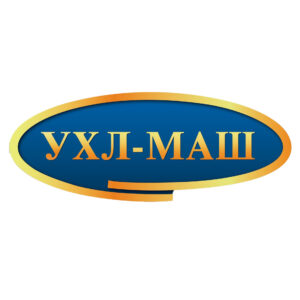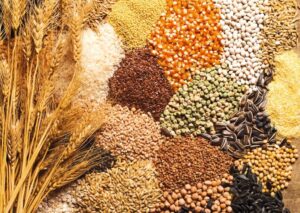
On March 27, 2025, under the patronage of the Embassy of Ireland in Ukraine and in cooperation with Project Dandelion, a global campaign for climate justice led by women, a special screening of the film Mrs. Robinson about the first woman President of Ireland, Mary Robinson, took place in Kyiv.
The screening was attended by numerous distinguished guests: heads of diplomatic missions of foreign countries accredited in Ukraine, representatives of the government, including Deputy Minister of Culture and Strategic Communications Andriy Najos, members of the Verkhovna Rada, educators and representatives of the Irish community in Kyiv.
Before the session began, the Ambassador Extraordinary and Plenipotentiary of Ireland to Ukraine, Jonathan Conlon, addressed the audience and briefly outlined the main achievements of the first female President of Ireland, Mary Robinson (1990-1997), a head of state who was and remains extremely popular with the people.
A reformist lawyer and senator at the beginning of her career, Mary Robinson provoked an electoral earthquake by winning the Irish presidential election in 1990.
Later, as the UN High Commissioner for Human Rights (1997-2002), she built a strong legacy and fought fearlessly for human rights around the world.
She subsequently became Chair of the Council of Elders (2018-2024), an independent group of world leaders founded by Nelson Mandela who work for peace, justice and human rights.
She is the recipient of numerous honors and awards, including the Presidential Medal of Freedom from U.S. President Barack Obama.
For half a century, Mary Robinson has been a passionate advocate for gender equality, women’s participation in peacebuilding, human dignity and climate justice.
Source : https://www.facebook.com/UkrDiplomatic?locale=ru_RU

The development strategy of Kormotech, a leading Ukrainian pet food manufacturer, includes the use of green energy, and the company aims to provide up to 15% of its own generation by 2027, Kormotech’s Chief Operating Officer Igor Paranyak said in an interview with Interfax-Ukraine.
“Our strategy includes steps towards the use of green energy. At the moment, we have already implemented a project to install a 630 kW solar station at the first factory in Lithuania. At the new factory (Kėdainiai, Lithuania), we also plan to install solar stations on the roof of the factory; given the rather large area, almost 17 thousand square meters, it will be a large SPP. It is not part of this (EBRD loan – IF-U) project, we will implement it separately, but we plan to have 15% of our own electricity generation by 2027,” Paraniak said.
As reported, Kormotech has started construction of a new wet animal feed plant in Lithuania, in which it is investing EUR 60 million, of which EUR 40 million was provided by the EBRD. The planned capacity of the new plant is 40 thousand tons, and 200 jobs will be created. The first phase of the plant is scheduled to be launched in the second quarter of 2026, and all four phases by the end of 2028.
Kormotech is a global family-owned company with Ukrainian roots that has been producing high-quality food for cats and dogs under the Optimeal, Delickcious, Club 4 Paws, Woof, Meow! My Love. The company has production facilities in Ukraine and the EU. The product range includes more than 650 items. Kormotech is a leader in Ukraine, one of the TOP-50 global pet food producers and TOP-20 most dynamic pet food brands. Kormotech sells products of its own brands and its partners’ own brands to 46 countries.
The Kormotech Group of companies ended 2024 with $162.7 million in turnover, which is 6.5% more than in 2023. In total, last year the group of companies sold 83 thousand tons of dry and wet diets for cats and dogs, which is almost 7.5% more than in 2023.

The total volume of foreign trade in dairy products in February 2025 amounted to $45.6 million, which is 8.5% more than in January 2025 ($42.0 million) and 16.4% lower than in December 2024 ($54.5 million), according to the Union of Dairy Enterprises of Ukraine (UDEP).
According to the report, dairy exports in February 2025 amounted to $24.2 million and increased by 25% compared to January 2025 ($19.3 million) and by 51% compared to December 2024 ($16.0 million).
“Such significant export volumes have not been recorded since October-2022,” the analysts emphasized.
According to them, the value structure of exports was formed as follows: 36% milk and condensed cream, 30% butter, 20% cheese.
At the same time, in February 2025, compared to February 2024, the value structure of exports changed slightly: the share of butter and milk fats increased (from 13% to 30%), while the share of cheeses of all kinds decreased (from 28% to 20%) and milk and cream not condensed (from 10% to 6%).
At the same time, imports continued to decline and became the lowest in the last six months: in February 2025, they amounted to $21.4 million, which is 6% lower than in January 2025 ($22.7 million) and 44% lower than in December 2024 ($38.5 million).
In addition, in February 2025, compared to February 2024, there were changes in the value structure of imports: the share of cheese increased (from 68.2% to 83.4%) against a significant decrease in the share of butter (from 16.5% to 2.4%). The share of cheese (83.4%) reached its highest level in recent years.
The balance of exports and imports in February 2025 was positive: $2.8 million, compared to -$3.4 million in January 2025 and -$22.6 million in December 2014.
In February 2025, exports in value terms exceeded imports by 13% (in January 2025 – 0.85 times, in December 2024 – 0.41 times).

UHL-Mash, a manufacturer of metal furniture for offices and retailers based in Kyiv, ended 2024 with a net profit of UAH 24.56 million and plans to leave it undistributed, according to the agenda of the general meeting of shareholders scheduled for April 28.
According to the draft decision of the meeting, it is planned to pay dividends in the amount of UAH 7.78 million from the retained earnings of 2016.
According to the National Securities and Stock Market Commission (NSSMC), as of the third quarter of 2024, 93.61% of the company’s authorized capital belongs to the Chairman of the Board Viktor Prikhodko.
The authorized capital of UHL-Mash JSC is UAH 460 thousand, with a share par value of UAH 20.
According to the company’s financial report for 2016, its net profit amounted to UAH 7.96 million, and retained earnings – UAH 19.45 million.
According to the Clarity Project, in 2024, the company’s revenue increased by 4.8% year-on-year to UAH 219 million, while net profit increased by 27.4%. Retained earnings at the beginning of this year amounted to UAH 159.6 million.
According to the company’s website, it was founded in 1994 on the basis of the Kyiv Research Machine-Building Plant.
The company produces metal office, office, industrial and laboratory furniture, equipment for car service stations, agricultural processing, safes, telecommunications and server equipment.
In 2003, the company organized a production complex for metal wardrobes and cellular cabinets in Boyarka.
Currently, the area of covered production facilities exceeds 16 thousand square meters. The company employs 350 people.
Among its regular customers are Privatbank, Metinvest, DTEK, and Interpipe.

India has opened its market to apples from Ukraine, the head of the State Service of Ukraine for Food Safety and Consumer Protection, Serhiy Tkachuk, said on Facebook.
“We have important news in the context of opening new foreign markets for the export of Ukrainian agricultural products. Recently, the first trial batch of Ukrainian apples arrived in the Republic of India. The Ministry of
Agriculture and Farmers’ Welfare of India has confirmed the successful completion of the inspection activities of this batch. The Indian side highly appreciated the quality of Ukrainian products and their compliance with the established requirements,” he wrote on Monday.
The head of the State Service of Ukraine for Food Safety and Consumer Protection noted that foreign partners positively assessed compliance with the criteria and requirements for the selection, pre-shipment storage, processing and transportation of Ukrainian agricultural products to India.
Tkachuk thanked the Indian side for the fruitful cooperation and expressed hope that it would continue.
The Head of the State Service of Ukraine for Food Safety and Consumer Protection assured that the agency, together with the Ministry of Foreign Affairs, will continue to work to expand opportunities for Ukrainian producers. “Support for the state’s economy and Ukrainian exporters is vital in the context of a full-scale war,” he summarized.

Exports of Ukrainian agricultural seeds have increased more than sixfold over the past five years, reaching $122 million in monetary terms from the initial $20 million, according to Oleksandr Zakharchuk, head of the investment and logistics department at the National Research Center “Institute of Agrarian Economics”.
“In 2025 and the following years, the existing trends are to increase exports by 10-15% annually and stabilize imports of agricultural seeds at the level of $350-400,” he said.
The scientist is convinced that the decrease in imports of grain and oilseed seeds is due to a number of factors, including the ability to produce conditioned hybrid seeds of foreign selection in Ukraine at new modern seed plants in Ukraine. This will be enough to meet both domestic needs and export to the EU.
In addition, he pointed to a decrease in seed consumption due to the reduction of commercial crops caused by Russia’s large-scale armed aggression against Ukraine, in particular, the temporary occupation of its territories and military operations.
“The consequences of Russia’s full-scale invasion of Ukraine, in particular, the temporary occupation of its territories, led to an increase in the plantings of certain niche grains and oilseeds. This, in turn, has led to an increase in imports of seeds of such crops as rye, oats, sorghum, flax, hemp, mustard, as well as sugar beets and vegetables in the period 2022-2024,” Zakharchuk stated.